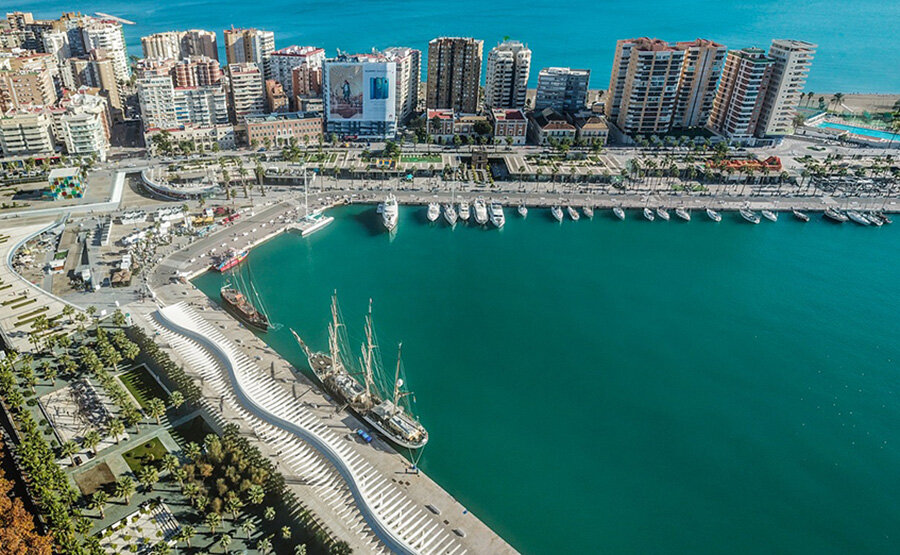Malaga Tightens Tourist Control: New Behavior Rules and Fines Up to €750

Photo: Needpix
Malaga has introduced updated rules for tourists regarding appearance, noise levels, cleanliness, and use of public space. Fines of up to €750 may be imposed for non-compliance, according to Euronews Travel. The initiative comes in response to growing tensions between locals and visitors.
As part of the "Improve Your Stay" campaign, tourists are urged to follow ten clear behavior guidelines. These include a ban on being shirtless or wearing swimwear in public places, as well as avoiding shouting, loud music, singing, and other disruptive conduct—especially in residential areas.
Tourists are also reminded to observe nighttime quiet hours, use bins and public toilets, and avoid riding scooters or bicycles in pedestrian zones. The recommendations are based on existing regulations and are presented in a simple, visual format across buses, billboards, and social media.
The maximum fine for rule violations is €750. Authorities emphasize that the goal is not to limit tourism, but to ensure better coexistence with residents. Public dissatisfaction has been growing in Spain, including in Malaga. In 2024, the city was plastered with anti-tourism stickers reading “this used to be my home” and harsher messages. Protests have also occurred in San Sebastián, Barcelona, Palma de Mallorca, Tenerife, and Seville—and continued into 2025.
Earlier this year, mass demonstrations took place in over 40 Spanish cities, with more than 150,000 people marching in Madrid alone. Protesters demand restrictions on cruise ships, limitations on short-term rentals, and a more sustainable tourism model that prioritizes residents’ interests.
Some of these demands are already being addressed. Since January 14, 2025, Malaga has enforced a three-year moratorium on new tourist apartment registrations in 43 neighborhoods where short-term rentals exceed 8% of the housing stock. Existing licensed properties may continue operating, but units registered after February 22, 2024, without separate entrances or utilities may lose their permits.
As of early 2025, Malaga hosts over 12,600 tourist apartments offering more than 65,000 beds. In March, Mayor Francisco de la Torre announced plans to expand the moratorium citywide and revise the urban development plan.
Similar restrictions are emerging across Spain. In Madrid, rentals are banned in historic districts and buildings without separate entrances. Only one tourist unit is allowed per building. Seville limits rentals to 10% of housing stock per district, while Alicante introduced a two-year ban in January. Barcelona will ban all short-term rentals from 2028, a decision upheld by Spain’s Supreme Court. The city is also raising the tourist tax to €15 per person per night.
The Barcelona City Council has also approved cruise reforms, reducing terminals from seven to five and lowering daily passenger capacity from 37,000 to 31,000 by 2030. Mayor Jaume Collboni described the measures as the first formal restrictions on cruise tourism. Earlier efforts included rerouting ships in 2018 and closing a central terminal in 2023.
The agreement between the city and port authorities emphasizes the need to regulate maritime tourism alongside hotels, transport, and urban planning. Terminals will display real-time information screens, and tourist shuttle routes will be introduced to ease pressure on the city center.
Spanish cities are moving from piecemeal solutions to systemic tourism regulation. Malaga’s increased oversight, rental limits, and Barcelona’s cruise reforms reflect growing efforts to protect local communities and preserve urban environments. Tourism remains vital to the economy—but no longer an untouchable priority. However, the new measures also increase uncertainty for investors focused on short-term rentals and tourism flows.








